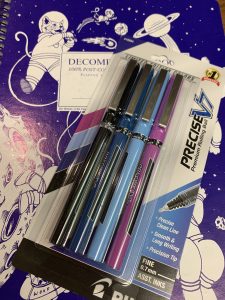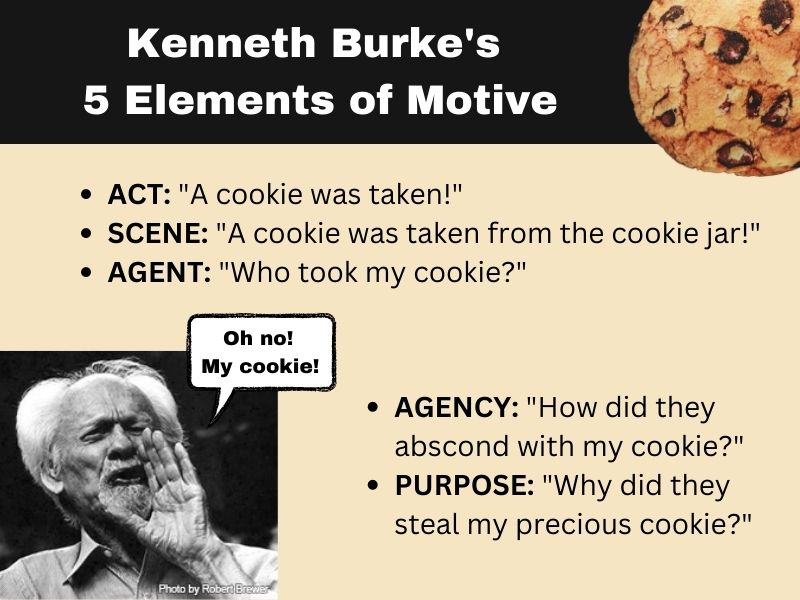There are no affiliate links here, just plain links. You can just give me cash if you like.
I had a colleague tell me she’s been using Research Rabbit ever since I showed it to her and others when I was still part of their academic writing group (I dropped out because I’m terrible at commitments. They are amazing.) I had no recollection of doing this, but apparently, I was good at it. I’ve only used it sparingly, knowing how easy it is to go down the Research Rabbit Hole and not get any writing done. I do recommend it for understanding what’s current in your area of research, or what some of the major papers are in your field. But, eventually, ya gotta get to the writing.
Eventually…I know.
We ended up talking about apps and I explained that trying out new systems and apps to keep track of my academic work was one of my favorite ways of avoiding that academic work. I then listed out some systems I’d tried and, as I listened to myself, I thought, “you could write a bit of a post about this. That way, you’re procrastinating and writing.”
Here we are.
Browzine app
Our library system has a number of ways to access scholarly journals through their website and the multi-search function they recently added really cuts down some of that initial time looking for sources. Being able to see what we have in the physical catalogs and the electronic catalog helps me gauge how far afield I’ll have to look for scholarship. Google Scholar is the fallback when I’m looking for a particular journal article.
However, there are a number of journals that I’d like to keep up with, even if their articles aren’t relevant to my current projects. Enter Browzine’s app. I can add journals to my personal library and I’ll get a notification every time they have a new issue. Sometimes the new articles are embargoed for a short-ish period (I’m looking at you, Rhetorical Society Quarterly and your eight-year delay), but you can access available articles and add them to your citation manager on your phone. I’ll sometimes do this after breakfast (it’s not that often because of the glacial pace of academic publishing) and it feeds my need to hoard PDFs, boosting the illusion that I’ll become a wide-reading academic.
Zotero
That citation manager is Zotero, at least for me. Our library has a deal? subscription? extortion racket? I don’t know, but I get free storage as a student, which I don’t use, but it’s there, and that’s nice. I have used EndNote, RefWorks, the stray Word doc that I messed up one time trying to do the alphabetical sort, a spreadsheet, and PaperPile. I would definitely recommend PaperPile, as it served me well though my master’s degree and thesis writing, but there was just one thing that Zotero could do that didn’t seem possible with PaperPile: related items.
Being able to link documents together allows me to remember why the heck I downloaded this PDF last week after eating my turkey bacon. “What was I thinkin…oh. Yes. It’s connected to that article I read about being a bat. Right!” This was the deal-maker between Zotero and I. Right now I leave all my citations “unfiled” and only add tags to loosely categorize. Because Zotero doesn’t use typical folders, but allows you to put your citation “in” a collection, I’m only sorting by projects I’m actually doing, not the full list of 12 projects that I will most certainly do someday down the road, just you wait, there will be so much project-making. My goodness. Zotero helps me stay real.
Obsidian
Through one plug-in, an add-on, and a custom template, I can seamlessly integrate my Zotero annotations into Obsidian, the software that lives on both of my computers and serves as my third brain. (My second is out of the country.) Obsidian gives you the interlinking capability of a wiki, with the plain-text (via Markdown) simplicity of…plain text. The files are stored on your hard drive, but can be synced to the cloud in any number of ways that I’m not sure how to do because as I was reading the instructions, my credit card jumped out of my wallet and signed me up for the relatively low cost syncing service.
Obsidian, the software (the musical hasn’t been announced yet) is free and minimal and, to be transparent, I’m writing in it right now. I used to be exclusively a Google Docs user and while I have no illusions about its usefulness or its snoopiness, the ever-so-slight, barely noticeable lag that happens when you type online annoyed the bejeesus out of me. ADHD allows me to notice things that other people miss and it makes life a never-ending search for that weird ticking sound. You hear that? It’s not me, right?
There is a LOT to something as simple as Obsidian and plug-ins expand its usefulness into the stratosphere, or Maine, I don’t know geography. It’s overwhelming and cool and I recommend you search the YouTubes for an introduction if you’re interested. I will link a good playlist here. As a final note, I used to use Notion, but I found setting up Notion more fun than using Notion. I also think that’s common. Writing in Obsidian is like writing in Notepad; like a slip-n-slide on an early August day.
InoReader
It’s still too soon to talk about the 2013 shut down of Google Reader. As the single most useful web app I’ve ever used, I still remember the pain in the pit of my stomach when I learned Google was killing my darling. That’s not an exaggeration like the rest of this blog. I felt like I was being dumped by the best, most golden-retrieverish boyfriend in the whole world. It hurt that much.
Then for years I used Feedly to follow RSS (Really Simple Syndication) feeds from all over the web, from news sites to blogs. I had a single space to catch up with what I think is important, save items for later, and easily share them. Feedly is fine, but I needed a change. That’s why I switched to InoReader, I guess.
Is it better than Feedly? I’m not sure. I don’t have a good reason other than whim for why I switched, but I was also paring down how many news feeds I followed (ten to two) and minimizing how much I needed to track and focusing on what I wanted to track. (This all happened last summer during the Great Month of Disengagement, which is for another time).
I scan through the headlines and star what I want to read in full. Then, anything I want to read more deeply or, if I feel it’s something that I’d like to use in class, I’ll transfer that to Zotero, make a PDF of the web page, highlight and annontate, then import into Obsidian. Now I’ll have the link, a PDF version of the page, my annotations, all put together in a note that I can access and link in my third brain. It’s quite the slick process in action. It only seems excessive when I have to spell it out for you.
So, that’s what I’m using right now, mostly. I still have a ton of stuff scattered around, but I’m slowly getting things moved into Obsidian and adding the most useful notes to my library. I don’t think I’ll be switching away from this anytime soon, because this short stack seems to make the transition between researching and writing easy. I feel more motivated to write knowing that I’m adding my own words to this knowledge base, and that’s pretty nifty.
Let me know what apps have made you the star academic I know you are. Actually, don’t. I may stop what I’m doing and go try them out, because if you’re using them, they must be really good and if there’s even half a chance it’s slightly better than what I’m using, I want to make sure that I fully transfer everything into that new system and see for myself.
Help.


